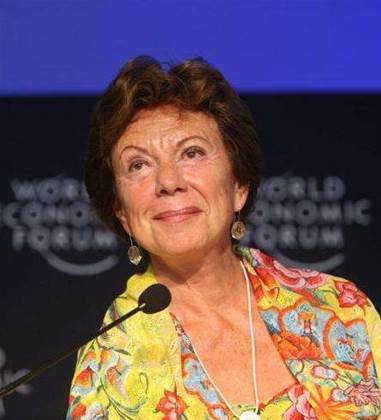European Commission Vice President for the Digital Agenda Neelie Kroes has defended Europe’s desire for strong data protection laws as “a must have” in the age of cloud computing.

Kroes [pictured], who spoke on the matter at the Université Paris-Dauphine, would like to see standards that require cloud providers to provide a means for consumers to realise the “right to be forgotten”.
She did not offer any explanation for how such a standard might be implemented, but said it should be possible for a person to make records online “irreversibly anonymous”.
People should also be free to move their data between cloud providers and not be forced to hand over more information than necessary.
Using an old IT security analogy, car safety, sshe said Europe would work towards a system where cloud providers built privacy into their architecture.
“A cloud without robust data protection is not the sort of cloud we need,” she said.
Every cloud customer should also have the right to know where their data resided.
“That is, where the servers are located,” said Kroes, noting limited exceptions for reasons of public order and national security.
Kroes labelled claims that Europe’s current data protection laws were disguised trade protectionism as incorrect.
But her comments only touched on the major complaint relating to the EU’s data protection laws, which relates to inconsistencies between EU member states’ implementation of the controversial EU Data Retention Directive. Microsoft, for example, has complained that the inconsistent implementation of the Directive often meant that compliance in one EU nation left a company in breach of regulations in another.
“The Commission will continue working with Member States to address this challenge,” said Kroes.
But progress may be some time off, given the right of member nations to implement higher standards than the directive requires.
“We need to clarify when this reflects an unavoidable difference of culture and legal tradition, or when it is merely an avoidable obstacle to the rules of the single market,” she said.


_(33).jpg&h=140&w=231&c=1&s=0)








 iTnews Benchmark Awards 2026
iTnews Benchmark Awards 2026
 iTnews Executive Retreat - Security Leaders Edition
iTnews Executive Retreat - Security Leaders Edition
 iTnews Cloud Covered Breakfast Summit
iTnews Cloud Covered Breakfast Summit
 The 2026 iAwards
The 2026 iAwards











_(1).jpg&h=140&w=231&c=1&s=0)



